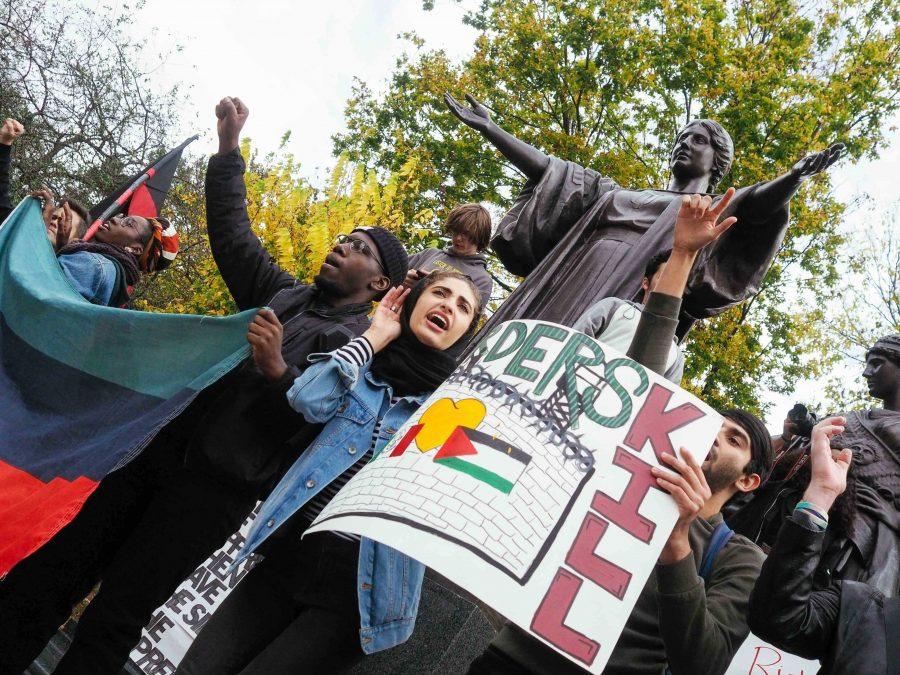Campus activism highlights political diversity
Students gather at Alma Mater to march through the Quad and down Green Street in order to protest President Elect Donald Trump on Friday.
December 12, 2016
As the nation faced protests and a divisive election, the University community mirrored the sentiments.
For Muhammad Yousef, senior in LAS and president of Students for Justice in Palestine, the increased activism on campus post-election did not make campus more bipartisan.
Citing bigotry from Donald Trump, Yousef said it legitimizes the stances of a certain group of people. Yousef believes that the election did make the political issues more explicit.
“More people are getting involved in a broader audience of students, and we are taking a more radical and political term,” Yousef said. “We are starting to notice that these problems are systemic and historical practices rather than individual events.”
Black Students for Revolution also remained a vocal student activist organization throughout the semester. In late October, they organized a class walkout on behalf of several different student activist organizations. Participants then marched to the chancellor’s office in Swanlund Building to deliver a list of demands for a more inclusive University.
Get The Daily Illini in your inbox!
Over the past year, Black Students for Revolution formed 13 demands including charging students an affordable tuition, penalizing perpetrators of sexual violence on campus and collecting data regarding sexuality-based demographics.
In November, Chancellor Robert Jones held a public forum with black student organizations on campus, including Black Students for Revolution. Jones said that while the University appreciates the value and good intentions of the protests held throughout campus, there are many parts of the community to consider when implementing campus changes.
In addition to the Black Students for Revolution, other individuals have turned to activism amid the 2016 presidential election.
The student association United Muslims and Minority Advocates hosted Hoda Katebi, blogger activist and representative of the Council of American Islam. During the November event, Katebi used her personal experience as a framework to discuss universal feminism.
Katebi worked to promote rights and extend feminism to every individual. Later, a University professor used the similar framework through a GoFundMe page. Toby Beauchamp, professor in Gender and Women’s Studies, started his fundraiser to ensure legal protection for the transgender community as a result of the election.
This GoFundMe page raised $23,619 in 19 days with the total goal being $24,500. The funds go toward gender name changes.
Discontent in the post-election climate existed far beyond just Beauchamp. A variety of student and activist groups worked together to protest and react in solidarity.
The University’s eighth annual Tunnel of Oppression further brought students together through its expressive event. As small groups of students walked through six paper-constructed tunnels, they listened to stories and watched skits put together by participating campus organizations.
The groups that participated included Disability Resources and Educational Services, Students Against Sexual Assault, Asian Pacific American Coalition, Muslim Student Association, LGBTQ+ and W.O.R.D., a spoken word organization on campus.
Stephanie Yi, senior in LAS and member of Students for Justice in Palestine, considered the political divide primarily personal in working closer with the activism community.
“The network that I have seen is very strong at the moment. And if there is a difference or rise in activism, I would have to say it is because, modern or global, the landscape isn’t looking very well,” Yi said. “Vulnerable and oppressed groups have to struggle — allowing the network to grow even stronger. The oppressed have bonded together.”







